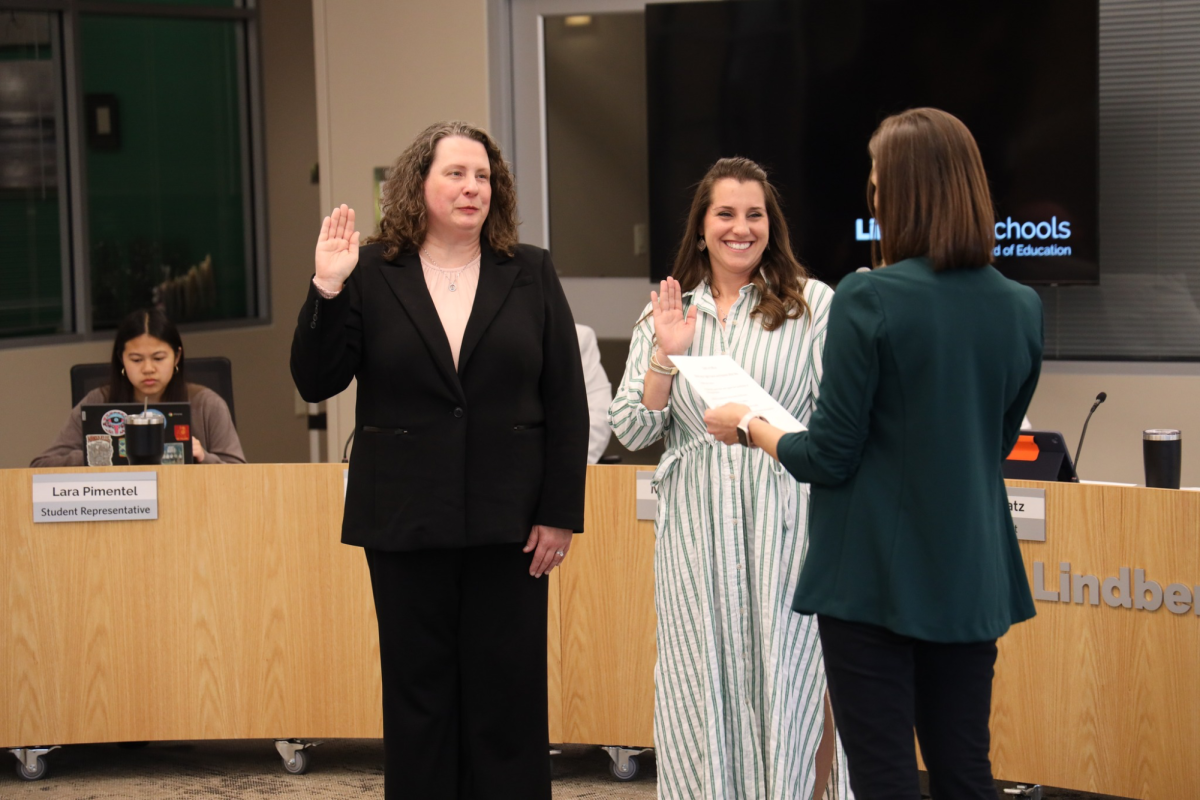Two-and-a-half years after entering into a now-unsuccessful arrangement for financial software programming, Crestwood aldermen agreed last week to pay any remaining money owed for those services.
Aldermen voted 7-0 during a May 8 closed session to pay up to $31,133.71 owed to the Koch Financial Corp. to cover any funds due to a lease-financing arrangement for that financial software approved in November 2004. Ward 1 Alderman Richard Bland was absent.
Mayor Roy Robinson said the city’s payment is offset by more than $15,000 in legal fees that Crestwood recovered in April from the maker of the financial software — Affiliated Computer Services/Springbrook.
Because Koch Financial still was owed consulting funds from a five-year, $113,200 lease approved by the board for the financial software, aldermen agreed to pay the remaining amount. Though the software did not perform the functions for which it was intended, Robinson said he and aldermen also were concerned that not paying money owed to Koch Financial would discredit the city’s image with other financial institutions.
“We’re just now getting our finances in order,” he said. “And what worried a lot of us was the fact that with the financial situation we had, it might have a negative effect in the financial community. And we’re trying to get things accomplished. And we didn’t want our city’s credit ratings down.”
Although he is relieved the matter is now behind the city, Robinson said he was surprised in 2005 to learn that even after the city’s administration determined the software would not function properly, the city still owed more money.
“In the summer 2005, when I first came in, I was asking about that and I was lied to,” Robinson said. “I was told that there had only been 23 (thousand dollars) or $24,000 authorized to expend there. So when I got the document to show that it had been authorized another $54,000, I was in complete shock. I was never told about anybody approving anything and I had asked about it.
“So, once again, I was lied to. And back then, I had no way of really finding out what it was. I had to rely on asking the question and hopefully getting the honest answer …
“In December (2005), they came to me and told me that (the software) wasn’t working and didn’t think it would work or would do what it’s supposed to do. And in conjunction with the former City Administrator (Don Greer), I said we ought to cut our losses right now because I don’t want to pay anymore money. I expected we could get it back, but I was thinking maybe $23,000. All of a sudden, this thing blew up a lot more than what I ever dreamed.”
Robinson added that without ACS/Springbrook’s April payment to the city of more than $15,000 in legal fees, he doubts aldermen would have approved the expense of funds owed to Koch Financial.
“When I found out from the previous ad-ministration or the previous people in charge that they had done a deal with a financial group in addition to ACS, I was really upset about that,” Robinson said. “I couldn’t figure out why. And if a company was big enough to be providing this, they should provide their own financing.”
Now that the payment to Koch Financial and receiving funds from ACS/Springbrook is complete, Robinson said the city is no longer involved in any lawsuits. But the mayor said at the May 8 Board of Aldermen meeting that the city still needs to schedule closed meetings to discuss “legal aspects.”
“People say: ‘Why are you having executive board meetings?'” Robinson said at the meeting. “And we don’t have any lawsuits. We have other things that come up in the middle of the month that need legal advice and attention from the board. So I just want you all to know that we don’t have any suits that we’re pursuing. We have things that come up that cause us to have to get some kind of approval from the board. So I’m trying, without delving into those, I want you all to know that the rumors you hear out there and the people that say: ‘What are they doing and why are they calling this meeting?’ If you think we enjoy going into that room and spending a lot of time, we don’t. We want to handle the legal aspects of the city.”
The Board of Aldermen met 18 times in executive session in the past year according to city records,. That figure is just one shy of the 19 closed meetings that occurred during Robinson’s first year in office from May 2005 through April 2006.
Based upon those records, the Board of Aldermen met more times in closed session in each of Robinson’s first two years as mayor than in the two election years before his arrival combined. In the two-year span from May 2003 through April 2005 before Robinson was elected mayor, aldermen met a total of 16 times — nine times from May 2003 to April 2004 and seven times from May 2004 to April 2005.
Robinson said during most of these executive meetings, aldermen simply give direction to City Attorney Robert Golterman and the administration by consensus and not by vote.
“Actually, most of the time, it’s giving direction to the city attorney or to me or whatever,” he said. “It’s not actual voting. Sometimes they have to take a vote … But a lot of times, there’s no voting because it’s just informing and getting consensus on what direction the board wants to go …
“I hear those comments that ‘Hey, I thought they didn’t have anymore lawsuits. Well, there could be, other than personnel, there could be things that are brought up that are of a legal nature.”
The mayor also said the board has planned to meet in closed session to discuss the results of the city’s 2006 financial audit, which he referred to as “good news.”
Section 610.021 (17) of Missouri’s Open Meetings and Open Records Law, or the Sunshine Law, allows these closed discussions of audits to occur. The section states: “Confidential or privileged communications between a public governmental body and its auditor, including all auditor work product; however, all final audit reports issued by the auditor are to be considered open records pursuant to this chapter.”
Robinson said while he personally would not mind discussing the audit in an open meeting, city officials have opted to take advantage of that Sunshine Law provision to further study the audit before publicizing it.
“There are provisions within the Sunshine Law that allow such things as audits and things to be done prior to public revealing to the public,” he said. “Nothing we want to hide. But sometimes they want to discuss and let the board know what’s going on, what they found in their audit before they make it public. Nobody’s trying to hide anything. It’s just the fact that those provisions are there to allow the executive board meetings to be called. So now you know the reasons why we do these things. It’s not because we’re trying to gin up something. We’re just trying to make sure that we’re covered.”




















